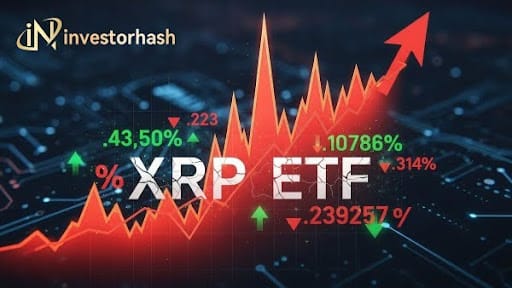Yuga Labs sees over $550 million in Otherside NFT sales within 24 hours

Over the weekend, Yuga Labs sold 55,000 NFTs tied to its upcoming Otherside metaverse. The highly-anticipated mint generated nearly $320 million for the company, but that was not all. High demand for the NFTs clogged the Ethereum mainnet and sent gas prices to shocking heights.
Moreover, Yuga Labs raked in more than $561 million from the Otherside’s “Otherdeed” sales.
Each of the 55,000 Otherdeed NFTs was priced at 305 APE. At the time of mint, Apecoin was approximately $19, meaning that each NFT cost about $5,800. According to data from CryptoSlam, Otherdeed recorded over $240 million in total secondary volume within 24 hours. As of press time, this figure had climbed to over $550 million.
As already mentioned, the high demand for the NFTs rocked the Ethereum network, immediately causing a gas war. Many users also reported that the minting site did not work for them.
For the uninitiated, a gas war occurs when there is a sudden spike in demand for space in the next block. This auction for priority inclusion is often associated with a clogged network and higher transaction fees as users battle it out to be at the front of the line.
Yuga Labs didn't realize they were still doing a dutch auction, it was just via gwei and not price
— bender (@0xBender) May 1, 2022
While some were able to process their transactions just in time for a couple hundred dollars in fees, others reportedly paid as high as $6,000 for a single transaction. According to Bloomberg, users paid a staggering $123 million as transaction fees to mint the NFTs. Jason Wu, the founder of decentralized lending protocol DeFiner, told Bloomberg:
Yuga Labs’ virtual land sale has triggered one of the highest spikes in transaction fees on Ethereum. I have seen other NFT launches causing high gas fees, but this is definitely one of the highest.
There have also been arguments that Yuga Labs could have done more to prevent the gas wars. Co-founder of SyndicateDAO, Will Papper, said that the Otherdeed smart contract had “nearly zero gas optimizations.” According to him, “modifying a few words would have saved $80M+” in gas fees.
Gas optimization 1: Remove the ERC721Enumerable extension.
— Will Papper ✺ (@WillPapper) May 1, 2022
The ERC721Enumerable extension is used to track the owners of an NFT on-chain. Mints that remove the ERC721Enumerable extension save around 70% in gas costs. This tiny change would have saved around $70M this hour. pic.twitter.com/nzmwjsVm2K
Papper’s stance was, however, countered by Ethereum co-founder Vitalik Buterin. The latter opined that optimizing the contract wouldn’t have solved the problem. He tweeted:
Regardless of contract details, tx fee goes up until list price + tx fee = market price. If gas usage per purchase decreased 2x, the equilibrium gas price would have just been >12000 gwei instead of 6000.
On its part, Yuga Labs has promised to refund those who had failed transactions.
We are aware that some users had failed transactions due to the incredible demand being forced through Ethereum’s bottleneck. For those of you affected, we appreciate your willingness to build alongside us – know that we’ve got your back and will be refunding your gas.
— Yuga Labs (@yugalabs) May 1, 2022
Bored Ape co-founder Garga.eth labeled the mint a “sour moment” for the NFT community, tweeting:
Needless to say tonight didn’t go how anyone wanted it to. I want to say sorry to the apes, and to everyone else who eagerly looked to join into the project.
One likely outcome of the whole fiasco is the possibility of migrating ApeCoin to its own chain. While apologizing for “turning off the lights on Ethereum for a while,” the company said it will “need to migrate to its own chain in order to properly scale.”
Check our guide of the most promising crypto




